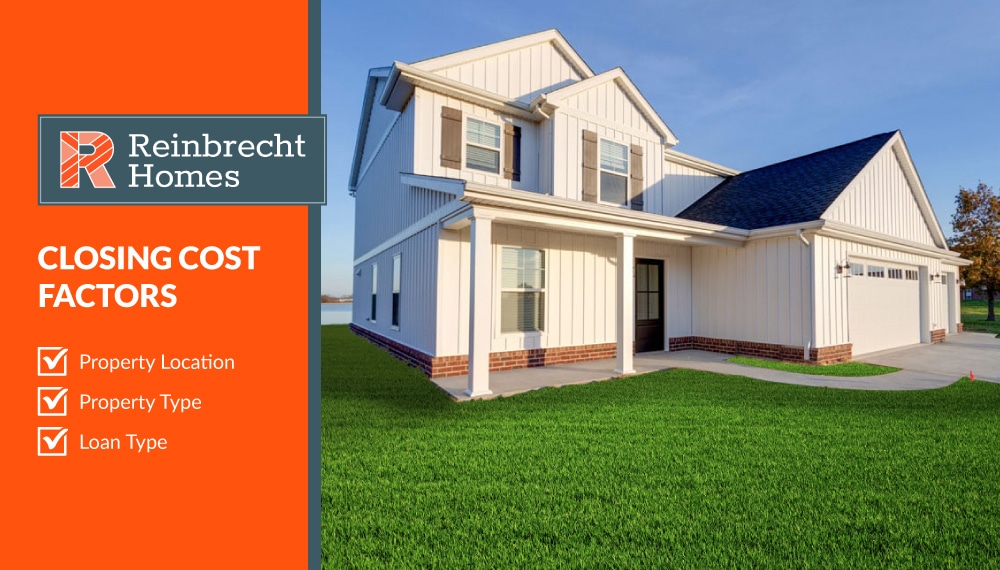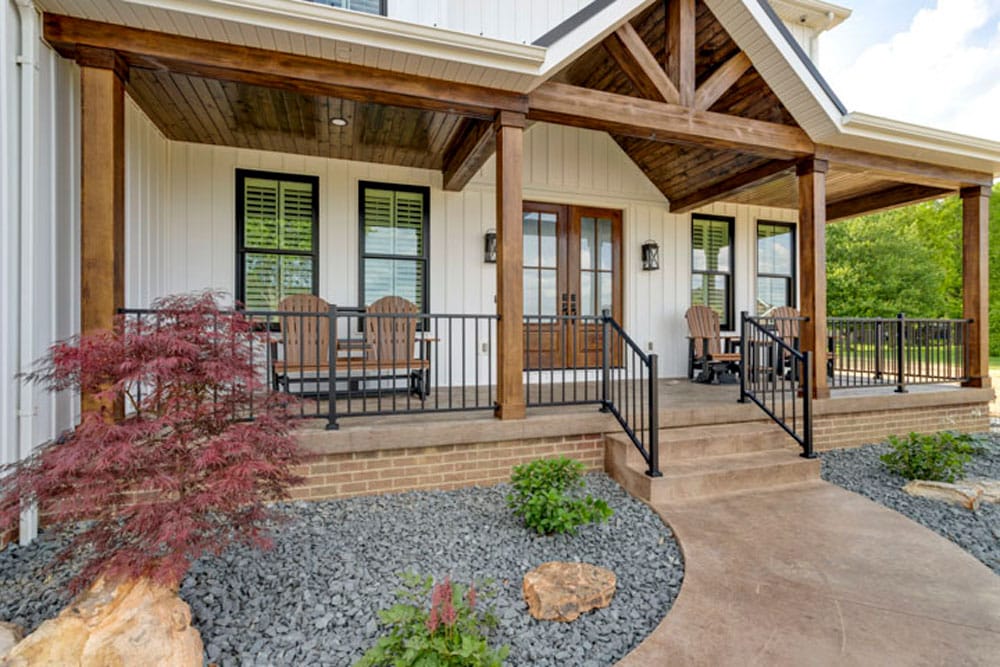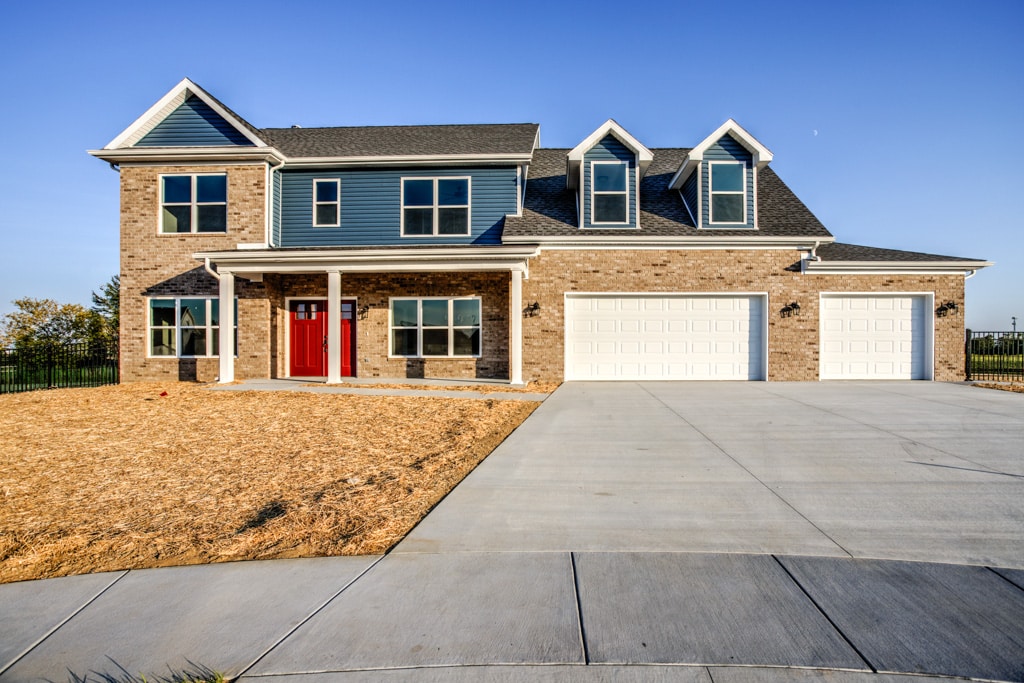Buying a home is a significant financial commitment and while the price tag of the property often takes center stage, there are other costs to consider. Among these overlooked expenses are the closing costs, which can add up to a significant sum.
In this blog post, we’ll delve into the specifics of closing costs. We’ll break down the components that make up these costs, discuss if they always come out of your pocket, and explore a simple and affordable solution from Reinbrecht Homes that helps you keep home financing expenses to a minimum.
Whether you’re building a house or purchasing a move-in ready home, this guide will equip you with the knowledge you need to navigate your way through the closing process without any unpleasant financial surprises.
Understanding Closing Costs
The closing of a home is a crucial step in transferring property ownership from the seller to the buyer.
Closing costs are a collection of charges that home buyers must pay during the process of purchasing a property. These expenses are separate and in addition to the property’s price and typically equate to around 2% to 5% of a home’s purchase price.
This process can often leave buyers feeling overwhelmed and confused and is something often overlooked by many first-time buyers. Getting acquainted with these costs and what the fees are covering is crucial to ensure buyers can budget appropriately and avoid unforeseen costs when the time comes to sign on the dotted line.
Who Pays the Closing Costs?
In a real estate transaction, it is customary for the buyer and seller to negotiate who will pay the closing costs. While it is common for the buyer to bear the majority of the expenses, this is not always the case. In some situations, the seller may agree to cover certain closing costs as part of the negotiation process.
Buyers need to discuss and clarify the responsibility for closing costs with the seller before finalizing the purchase agreement. This can help avoid any confusion or unexpected financial burden during the closing process.
3 Factors That Influence Closing Costs


Closing costs are impacted by a variety of factors. These variables can significantly alter the total amount a buyer has to pay at the close of a real estate transaction. Aside from the price of the home or loan amount, there are three main factors that contribute to the amount of the closing costs. Let’s take a closer look at each of these factors:
Property Location
One major influencing factor is the location of the property. Different states, cities, and even neighborhoods can have varying regulations and tax rates, which can either increase or decrease closing costs.
Type of Property
Additionally, the type of property being purchased also plays a significant role. For example, a custom-built new construction home might have different closing costs compared to a move-in ready home.
Type of Loan
Similarly, the type of loan chosen by the buyer can significantly impact the closing costs. Conventional, FHA, VA, or USDA loans all have different closing cost structures.
It’s essential to understand these factors to anticipate the potential cost and minimize surprises at the closing table.
Types of Closing Costs Paid by the Buyer
When purchasing a new construction home, buyers may encounter specific closing costs, with some that aren’t typically associated with resale homes. This is because new construction involves unique processes and additional steps, which can affect the overall costs. These costs are typically associated with finalizing the loan to construct your home.
Closing costs vary from transaction to transaction, but there are a few common loan and property-related components that are generally included in the closing costs of a new home. Let’s explore some of these types of closing costs and what the fees are covering:
Loan Origination Fee
Loan origination fees are what a lender charges for processing a new loan application. This covers tasks like underwriting, processing, and funding the loan. It’s essentially the cost you pay for securing the finances necessary to purchase your home.
Underwriting Fee
An underwriting fee is a charge imposed by a lender for the process of assessing the borrower’s creditworthiness and determining the terms and conditions of the loan. This fee covers the cost of reviewing financial documents, verifying income and assets, and evaluating the risk associated with lending to the buyer.
Recording Fee
Recording fees are charged by the county or municipality to record the new deed and mortgage documents with the appropriate government office. These fees ensure that the property ownership is legally documented and publicly recorded.
Appraisal Fee
Appraisal fees are charges incurred to ascertain the fair market value of the property you’re buying. This process is necessary to ensure that the home’s price is in line with its actual worth, providing a sense of security for both the lender and the buyer. The fee is used to cover. the work that a licensed appraiser does to determine the worth. Even though this is considered a component of closing costs, it is typically purchased long before the day of close unless it is rolled into the loan.
Builder Fee
The builder fee, also known as the construction fee, is a cost some lenders include to cover the risks and additional work associated with financing a new home, as well as profits associated with the construction of the home. This fee can vary widely, typically as either a flat amount or as a percentage of the loan amount.
Surveys
There may also be survey costs associated with a new construction home. A survey is conducted to determine the exact boundaries of the property and to identify any encroachments or easements. This is important for establishing legal ownership and ensuring there are no conflicts with neighboring properties. The cost of a survey can vary depending on the size and complexity of the property.
Title Insurance
Builders may require buyers to purchase title insurance with the home as a condition of their agreement. Title insurance protects the buyer and the lender from any potential issues or claims that may arise regarding the property’s ownership or title. It ensures that the buyer is acquiring a clear and marketable title to the property.
This fee covers the cost of conducting a thorough title search and providing insurance against any undiscovered liens or ownership disputes.
The cost of title insurance can vary depending on the property’s purchase price and the insurance provider. It is typically a one-time premium paid at closing. The buyer can choose to purchase owner’s title insurance, which protects their interests, or lender’s title insurance, which protects the lender’s interests.
Working with a reputable title insurance company or seeking guidance from a real estate attorney can help buyers navigate this aspect of closing costs effectively.
Inspections
Inspections for a new construction home are crucial to ensure that the property meets all the necessary building codes and quality standards. These inspections are typically conducted at various stages of the construction process, such as before the foundation is poured, after the framing is complete, and before the final walkthrough.
Each inspection typically incurs a separate cost, which can range from a few hundred to a few thousand dollars, depending on the size, location and complexity of the home project. This is not necessarily going to be a closing cost – it depends on the builder and the way they cover the costs of the inspections. If you, as the homeowner, decide to pay for the inspection after the build, which does happen from time to time, that becomes the homebuyer’s cost to pay so this is important to keep in mind whether it is an actual closing cost, rolled into the loan, or otherwise.
Some common types of inspections include:
- Foundation Inspection: This inspection ensures that the foundation of the home is properly constructed and meets the required standards. It checks for any structural issues, such as cracks or weaknesses.
- Framing Inspection: This inspection is conducted after the framing of the house is complete. It verifies that the framing is done correctly and according to the building plans. The inspector checks for proper spacing, support, and installation of components like windows and doors.
- Electrical Inspection: This inspection focuses on the electrical systems of the home, including wiring, outlets, switches, and the electrical panel. It ensures that the electrical work is done safely and meets the local electrical codes.
- Plumbing Inspection: This inspection examines the plumbing systems, including pipes, fixtures, and water supply. It checks for leaks, proper installation, and compliance with plumbing codes.
- Final Inspection: The final inspection is the last step before the buyer takes possession of the new construction home. It covers a comprehensive review of all the systems and components of the house to ensure everything is functioning properly and meets the required standards.
When budgeting for closing costs, it’s essential to consider all the potential closing costs associated with purchasing a new construction home as these can add up quickly. Keeping an eye out for strategies to reduce or eliminate out-of-pocket expenses is a great way to ensure you’re not hit with any unexpected costs at the closing table.
Out of Pocket Payment for Closing Costs

The concept that closing costs are an out-of-pocket expense is a common misconception. While they can be paid out of pocket, it’s not always the case. Some buyers opt to finance them into their loan, essentially rolling these costs into the mortgage. This option, however, may increase your monthly payments and the total amount paid over the life of the loan.
On the other hand, there are strategies to reduce or even eliminate the out-of-pocket expenses related to closing costs.
One such strategy is to negotiate for seller concessions, where the seller agrees to pay a portion or all of the closing costs. This can be a great relief for buyers, but it’s worth noting that sellers are more likely to agree to this in a buyer’s market.
Another strategy is to secure lender credits. In this setup, the lender agrees to cover some or all of the closing costs in exchange for a slightly higher interest rate on the loan. This can significantly reduce your upfront cash outlay, but like financing closing costs into your loan, it can cost more in the long run due to the increased interest payments.
Lastly, some state and local governments, as well as some non-profit organizations, offer assistance programs for first-time homebuyers or low-to-moderate income buyers. These programs offer reduced closing costs and can be beneficial to homebuyers who qualify.
Reinbrecht Homes Offers A Variety of Financing Options
Navigating the financial aspects of building a new home can be a daunting process, but with a trusted partner like Reinbrecht Homes, you’re never alone. Our years of experience in homebuilding have equipped us to guide you through every step of your homebuilding journey, including understanding and managing the financing aspect of the process.
Reinbrecht Homes makes financing your new home as straightforward as possible. Through our partnership with several local banks, we offer a variety of competitive financing options such as conforming loans, FHA loans, and USDA loans.
Additionally, Reinbrecht Homes offers free construction loans up to $250,000 on all home construction loan types. This means that instead of making interest-only payments, your only out-of-pocket expense during the construction of your home is the initial $1,000 down payment.
Our experienced professionals can guide you through the different financing options so you can make informed decisions.
Closing Costs Don't Have to Be a Surprise—Choose Reinbrecht

Closing costs can add a significant amount to the overall cost of purchasing a home. By considering these costs upfront and including them in the budget, buyers can avoid any financial surprises during the closing process. Furthermore, with a financing plan with Reinbrecht Homes, you can avoid throwing away interest-only payments during construction and enjoy free construction financing with no surprises at closing.
Whether you’re buying a move-in ready home, selecting from our floor plans for a semi-custom home, or embarking on a custom home building project, we’re here to assist with every detail, from budgeting to securing the best home financing options.
Start your homebuilding journey with us today with a free construction loan from Reinbrecht Homes. Let’s build a home that’s perfectly tailored to your needs, preferences, and budget.




